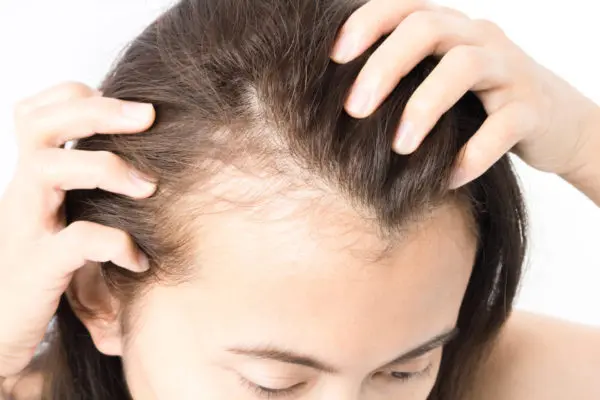Alopecia Areata is a challenging autoimmune condition characterized by sudden, patchy hair loss that can significantly affect a person’s confidence and quality of life. For those seeking effective solutions, Alopecia areata treatment in Dubai(علاج الثعلبة البقعية في دبي) increasingly includes immunotherapy, a treatment approach designed to modify the immune system’s response and promote hair regrowth. This article explores the essentials of immunotherapy for Alopecia Areata, including how it works, types of treatment, benefits, risks, and what patients can realistically expect.
Understanding Alopecia Areata and Its Immune Connection:
Alopecia Areata arises when the immune system mistakenly attacks hair follicles, causing hair to fall out in patches. This autoimmune nature means that traditional hair loss treatments often have limited success, and targeted immune modulation becomes crucial.
How the Immune System Affects Hair Follicles:
- Immune cells infiltrate hair follicles, halting hair production
- Inflammation damages follicle structures temporarily
- Hair follicles enter a resting phase, causing shedding
Immunotherapy aims to intervene in this immune process and restore normal hair growth.
What Is Immunotherapy in the Context of Alopecia Areata:
Immunotherapy refers to treatments that either suppress or modulate the immune system’s activity to prevent it from attacking hair follicles. Unlike treatments that simply stimulate hair growth, immunotherapy targets the root cause of the disease.
Goals of Immunotherapy:
- Reduce inflammation around hair follicles
- Alter immune signaling pathways responsible for follicle damage
- Promote an environment conducive to hair regrowth
By addressing the underlying autoimmune response, immunotherapy offers hope for sustained improvement.
Types of Immunotherapy for Alopecia Areata:
Several immunotherapeutic approaches are available, each with distinct mechanisms and applications.
Topical Immunotherapy:
- Involves applying agents like Diphencyprone (DPCP) or Squaric acid dibutylester (SADBE) to the scalp
- Provokes a mild allergic reaction that distracts the immune system
- Requires repeated treatments over weeks or months
Advantages: Non-invasive and effective for patients with patchy or extensive hair loss
Considerations: Can cause redness, itching, and requires close medical supervision
Systemic Immunosuppressants:
- Oral or injectable corticosteroids reduce overall immune activity
- Used for more severe or rapidly progressing cases
Advantages: Can halt progression quickly
Considerations: Long-term use can lead to side effects like weight gain, osteoporosis, and increased infection risk
Janus Kinase (JAK) Inhibitors:
- Target specific immune signaling pathways involved in hair follicle attack
- Medications like Baricitinib and Tofacitinib have shown promising results in clinical trials
- Increasingly becoming accessible in advanced treatment centers
Advantages: Precision targeting with effective hair regrowth outcomes
Considerations: Requires ongoing medical monitoring due to potential side effects and cost considerations
What to Expect During Immunotherapy Treatment:
Understanding the treatment journey helps patients maintain realistic expectations and stay motivated.
Treatment Timeline:
- Hair regrowth may begin within 8 to 12 weeks but can vary
- Initial hair may be fine and light before thickening over time
- Full regrowth can take 6 months or more
Treatment Frequency and Monitoring:
- Topical immunotherapy typically requires weekly clinic visits
- Systemic treatments need periodic blood tests and health assessments
- Adjustments may be made depending on response and side effects
Consistency and patience are essential components of success.
Possible Side Effects and How They Are Managed:
Like all medical treatments, immunotherapy carries potential risks that need to be carefully managed.
Common Side Effects:
- Scalp irritation, redness, and itching (topical agents)
- Weight gain, mood changes, and increased infection risk (systemic corticosteroids)
- Fatigue, nausea, or changes in blood markers (JAK inhibitors)
Safety Measures:
- Regular follow-ups with your dermatologist
- Blood work to monitor organ function and immune markers
- Prompt reporting of unusual symptoms for timely intervention
Open communication with your healthcare team ensures safe and effective treatment.
Complementary Approaches to Enhance Immunotherapy:
Combining immunotherapy with other supportive treatments can improve outcomes and scalp health.
Nutritional Support:
- Vitamins like D, Biotin, and Zinc support hair follicle function
- Anti-inflammatory diets may reduce autoimmune activity
Regenerative Therapies:
- Platelet-Rich Plasma (PRP) injections stimulate hair follicles and improve scalp condition
- Microneedling enhances topical drug absorption and skin repair
Stress Management:
- Psychological stress can worsen autoimmune responses
- Mindfulness, yoga, and counseling may provide benefits
Integrating these approaches contributes to a holistic treatment plan.
Why Choose Immunotherapy in Dubai:
Dubai has rapidly emerged as a leading destination for advanced Alopecia Areata care.
Advantages of Treatment in Dubai:
- Access to internationally trained dermatologists and immunotherapy experts
- Availability of cutting-edge medications including JAK inhibitors
- Clinics equipped with state-of-the-art diagnostic and treatment technologies
- Personalized, patient-centered care plans tailored to individual needs
This makes Dubai an excellent option for those seeking comprehensive Alopecia Areata solutions.
Preparing for Immunotherapy Treatment:
Proper preparation helps maximize benefits and minimize risks.
Preparation Steps:
- Detailed consultation and diagnostic workup with a dermatologist
- Disclosure of all medical history and medications
- Understanding treatment plan, possible side effects, and required commitment
- Maintaining a healthy scalp environment through gentle hair care
Being informed and prepared enhances treatment success.
Long-Term Management and Follow-Up:
Alopecia Areata often requires ongoing care beyond initial treatment phases.
Long-Term Care Includes:
- Periodic assessments to monitor hair regrowth and immune status
- Adjusting therapies as needed to maintain hair growth
- Psychological support to address emotional impact
Sustained management improves quality of life and minimizes relapses.
Final Thoughts:
Immunotherapy offers a promising option for many with Alopecia Areata, especially those who have not responded well to traditional therapies. By targeting the immune system’s malfunction, it addresses the root cause rather than just symptoms.
If you are considering Alopecia areata treatment (علاج الثعلبة البقعية), immunotherapy provides access to some of the latest advances under expert care. Consult with a qualified dermatologist to discuss your case and develop a personalized plan tailored to your condition and lifestyle.

